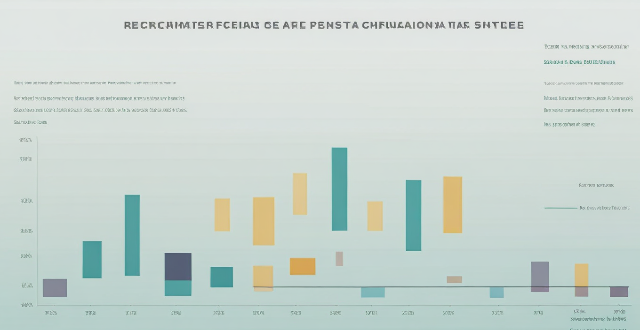Financial Policy

What happens if I cancel my insurance policy early ?
Cancelling an insurance policy early can have several consequences, including a potential refund of unused premium, penalties and fees, loss of coverage, difficulty in getting future coverage, and impact on credit score. It's important to carefully consider these factors before making a decision to cancel your policy.

What challenges do cities face in implementing climate adaptation plans ?
Cities worldwide face numerous challenges in implementing climate adaptation plans, including limited financial resources, institutional and policy hurdles, information and technology barriers, public awareness and engagement issues, and ecological and environmental factors. Addressing these challenges requires a comprehensive approach that combines policy innovation, financial investment, technological advancements, community involvement, and environmental stewardship.

What are the implications of these education policy updates for higher education ?
Education policy updates have significant implications for higher education institutions, students, and educators. These policies can impact the quality of education, access to education, and the overall structure of higher education. One of the main implications is the potential for curriculum changes, which could lead to changes in course offerings, teaching methods, and assessment practices. Another implication is the need for faculty development, as educators may need to update their skills and knowledge to effectively implement new requirements. Changes to financial aid policies and admissions policies can also impact access to higher education. For example, if a policy requires universities to admit a certain percentage of underrepresented groups, institutions may need to revise their admissions processes to ensure compliance. Finally, education policy updates can influence the structure of higher education by modifying accreditation standards and promoting inter-institutional collaboration. It is essential for higher education stakeholders to stay informed about these policy updates and adapt accordingly to ensure that they continue to provide high-quality educational experiences for all students.

What are the challenges faced by Germany due to its open immigration policy ?
Germany's open immigration policy brings economic, social, and political challenges including infrastructure strain, job market competition, cultural integration difficulties, religious diversity conflicts, anti-immigration sentiments, international pressure, and legal challenges. Addressing these requires a collaborative approach involving various sectors to minimize challenges while benefiting from the policy.

What should I look for in a travel insurance policy for adventure activities ?
When selecting a travel insurance policy for adventure activities, there are several key factors to consider, including coverage for specific sports and equipment, medical and evacuation coverage, trip interruption and cancellation, baggage and personal effects, liability coverage, and customer service and support. By considering these factors, you can choose a policy that will give you peace of mind and financial protection during your exciting adventures abroad.

Who are the main financial regulators in the world ?
Financial regulators worldwide play a pivotal role in maintaining the stability and integrity of the global financial system. Key institutions include the SEC, Fed, CFTC, and FINRA in the US; ECB and ESMA in the EU; BoE and FCA in the UK; BoJ and FSA in Japan; and PBOC and CBIRC in China. The Basel Committee on Banking Supervision and IOSCO also set global standards for bank regulation and securities markets, respectively. These regulators collaborate to address cross-border issues and enhance the health and integrity of the global financial system through implementing regulations, monitoring market activities, promoting transparency, and taking action against illegal or unethical practices.

What is the role of international organizations in financial regulation ?
International organizations are crucial in financial regulation, promoting stability, cooperation, and coordination among countries. They set global standards, enhance coordination, provide policy advice, facilitate information exchange, and monitor market developments. The Basel Committee on Banking Supervision, International Organization of Securities Commissions, and International Association of Insurance Supervisors develop regulatory standards for banks, securities regulators, and insurance, respectively. The Financial Stability Board coordinates international financial regulation, while the Bank for International Settlements facilitates cooperation among central banks. The World Bank and IMF offer technical assistance and support for financial sector development and reform. The Committee on Payment and Settlement Systems promotes payment system stability, and the Joint Forum of Tax Administrations addresses tax evasion. The Global Financial Stability Report and Early Warning Exercises monitor market developments and emerging risks. Overall, these organizations help ensure financial stability, reduce systemic risks, and foster a more transparent and resilient global financial system.

How do climate model predictions influence policy decisions ?
Climate model predictions significantly influence policy decisions on climate change by identifying risks, assessing mitigation measures, guiding long-term planning, and fostering international cooperation. These models simulate the Earth's climate system to predict future conditions, aiding in prioritizing actions, allocating resources, and evaluating intervention strategies. However, challenges like uncertainty, data quality, interpretation, and policy inertia must be addressed to ensure effective translation of scientific findings into actionable policies.

What are some common misconceptions about personal finance that financial education aims to correct ?
The text discusses common misconceptions about personal finance, such as the belief that saving is more important than investing and that credit cards are inherently bad. It also touches on the perceived tedium of budgeting, the underestimation of life insurance's importance, and the notion that retirement savings are unattainable for some. Moreover, it dispels the myth that all investments carry high risk and emphasizes the necessity of having a will. Overall, the article highlights how financial education can correct these misguided beliefs and help individuals manage their money wisely to achieve their financial objectives.

How can technology support more accurate and efficient climate policy evaluations ?
Technology aids in accurate & efficient climate policy evaluations by offering tools for data collection, modeling, visualization, collaboration, and automation.

How can I create a strong password policy for my network ?
Creating a strong password policy is crucial for the security of your network. Follow these steps to create an effective password policy: 1. Determine the purpose of the password policy. 2. Define password requirements. 3. Enforce password changes. 4. Store passwords securely. 5. Train users on password security. 6. Monitor and audit password use.

Does restrictive immigration policy improve national security ?
The text discusses the complex question of whether restrictive immigration policy enhances national security. It explores various aspects including economic impact, social cohesion, international relations, and internal security dynamics to provide a nuanced understanding. The text concludes that while a restrictive immigration policy might seem appealing from a national security standpoint, it is not a silver bullet, as benefits must be weighed against potential negative impacts on different factors. A balanced approach that ensures thorough vetting without undue restrictions might prove more effective in enhancing national security in the long term.

What role does public participation play in climate policy evaluation ?
Public participation is vital in climate policy evaluation as it ensures accountability, transparency, and diverse perspectives. It allows for the co-creation of solutions and fosters a sense of ownership among citizens. Governments can promote public participation through public consultations, collaborative governance, and digital technologies. Overall, public participation leads to more effective and sustainable climate policies.

How does Fintech impact financial inclusion ?
Fintech has revolutionized financial services, making them more accessible and affordable. It has increased accessibility for unbanked populations, lowered costs, improved efficiency, driven innovation, enhanced security, promoted financial literacy, facilitated inclusion initiatives, enabled digital identity verification, supported microfinance and crowdfunding, and promoted mobile money and payment systems. These advancements have significantly impacted financial inclusion worldwide.

Can climate information sharing lead to better policy making ?
Climate change is a pressing issue that requires informed policymaking. Climate information sharing can improve decision-making, collaboration, and transparency in the policy process. However, challenges such as data quality, accessibility, and coordination must be addressed to ensure effective information sharing. Overcoming these challenges can lead to better policies that address climate change.

How can I maintain my financial freedom once I achieve it ?
The text discusses strategies for maintaining financial freedom, including creating a budget and sticking to it, building an emergency fund, investing wisely, living below one's means, and continuously learning and growing. It emphasizes the importance of discipline, planning, and effort in sustaining financial independence.

What is the impact of financial regulation on innovation in the financial sector ?
Financial regulation plays a critical role in the innovation landscape of the financial sector, with both positive and negative impacts. Positively, it promotes transparency and trust, encourages responsible innovation, and facilitates access to capital. However, it can also slow down the pace of innovation, restrict experimentation, and stifle international competitiveness. To mitigate these negative effects, adaptive regulation, collaborative approaches, and education and training are recommended. Striking a balance between fostering innovation and ensuring safety is crucial.

What is the relationship between financial regulation and financial stability ?
The relationship between financial regulation and financial stability is crucial for the proper functioning of the economy. Financial regulation, consisting of laws and guidelines, aims to ensure the safety and soundness of the financial system and protect consumers. Financial stability, on the other hand, refers to a condition where the financial system can withstand shocks without significant disruptions. Financial regulation affects financial stability in several ways: 1. It prevents financial fraud and misconduct by enforcing strict rules and penalties, maintaining public trust in the financial sector. 2. It promotes transparency and disclosure, allowing stakeholders to make informed decisions and enabling regulators to monitor the financial system effectively. 3. Regulators encourage sound risk management practices, such as capital requirements and stress testing, contributing to overall financial stability. 4. They maintain market integrity by promoting fair competition and preventing monopolistic behavior, ensuring confidence in the financial system. 5. Regulators address systemic risks through macroprudential policies, safeguarding against widespread financial instability. In conclusion, financial regulation plays a vital role in maintaining financial stability by preventing fraud, promoting transparency, encouraging sound risk management, maintaining market integrity, and addressing systemic risks. However, finding the right balance between regulation and innovation is crucial for achieving both regulatory effectiveness and financial stability.

What is the impact of financial regulation on global financial markets ?
Financial regulation is vital for maintaining stability and efficiency in global financial markets. It influences market stability by reducing volatility and preventing crises, improves risk management through enhanced transparency and control over high-risk practices, protects investors from fraud and unfair trading practices, and fosters innovation while ensuring safety and compliance. This balance is crucial for the health and growth of the global economy.

What role do economic indicators play in policy making by central banks ?
Economic indicators play a crucial role in policy making by central banks. They provide valuable information about the state of the economy, which helps central banks make informed decisions about monetary policy. Economic indicators are used to measure economic performance, identify risks and challenges, guide monetary policy decisions, and communicate with markets. Central banks use these indicators to assess whether the economy is growing at a sustainable pace or if there are any imbalances that need to be addressed. They also help central banks identify potential risks and challenges facing the economy, such as a widening trade deficit or rising imports. Economic indicators guide monetary policy decisions by helping central banks determine whether to raise or lower interest rates based on inflation targets. Finally, economic indicators play an important role in communicating with markets by providing transparency and clarity about central bank policy decisions.

Do all travel insurance policies offer 24/7 emergency assistance ?
Travel insurance policies vary in the level of emergency assistance they offer, with many providing 24/7 support for medical emergencies, lost documents, and other crises. However, it's crucial to read the policy terms carefully to understand any limitations or exclusions. Consider factors like coverage limits, deductibles, and the insurer's reputation when selecting a policy to ensure you have the right support during travel.

How do financial regulations impact banks and other financial institutions ?
Financial regulations are crucial for maintaining stability in the banking and financial sector. They protect depositors' interests, promote fair competition, prevent financial crises, and impact innovation and efficiency. Regulations like capital adequacy ratios, liquidity coverage ratios, and stress testing ensure depositors' safety. Antitrust laws and consumer protection laws encourage fair competition among banks. Prudential supervision and Basel III help prevent financial crises. However, excessive regulation may negatively affect innovation and profitability. Striking a balance between safety and promoting innovation is key.

How can governments encourage and improve financial literacy among citizens ?
Governments can encourage financial literacy by implementing education programs, offering accessible financial services, and enforcing consumer protection regulations. This will help citizens make informed decisions about their money, investments, and debts.

What role does financial literacy play in achieving wealth growth ?
Financial literacy is essential for wealth growth, encompassing budgeting, saving, investing, retirement planning, and credit management. By understanding these aspects, individuals can make informed financial decisions, reduce debt, build wealth, and achieve long-term financial stability.

What is the return policy for items purchased during a limited-time promotion ?
When you purchase items during a limited-time promotion, it is important to understand the return policy associated with those purchases. The return policy for items purchased during a limited-time promotion may vary depending on the retailer or brand. Most retailers have a specified time limit for returns, which is usually stated in their return policy. The item must be returned in its original condition, including any packaging and accessories that were included with the purchase. Refunds are typically issued using the same method of payment as the original purchase. There are some exceptions to the general return policy for items purchased during a limited-time promotion, such as final sale items, customized items, and shipping and handling fees. To ensure a smooth return process, keep receipts and packaging, check the return policy before purchasing, and contact customer service if unsure.

In what ways does financial literacy affect personal finance management ?
Financial literacy is crucial for managing personal finances effectively, as it helps individuals understand basic financial concepts, promotes prudent budgeting and spending habits, shapes savvy saving and investing strategies, and facilitates efficient debt management.

What is financial regulation ?
The text discusses the concept of financial regulation, which is a set of rules and guidelines that govern the operations of financial institutions. The primary objectives are to ensure stability and integrity of the financial system, promote fair dealing, protect consumers, and prevent financial crises. Key components include prudential regulation, market conduct regulation, consumer protection, systemic risk oversight, structural regulation, regulation of market infrastructure, and international coordination. Purposes of financial regulation are to ensure stability, promote transparency, protect consumers, facilitate efficiency, and prevent criminal activity. Methods of financial regulation include rulemaking, supervision, inspection, capital requirements, and liquidity requirements. Challenges in financial regulation include balancing oversight with innovation, keeping pace with technology, and international coordination.

Is it worth purchasing additional riders or supplements to my basic insurance policy ?
The article discusses the decision of whether it is worth purchasing additional riders or supplements to a basic insurance policy. It explains that these optional coverages provide protection for specific risks not covered by the basic policy, such as flood damage or liability concerns. The article highlights situations where purchasing additional riders may be beneficial, including living in high-risk areas, owning valuable assets, or having significant liability concerns. It also lists the pros and cons of adding riders, emphasizing enhanced coverage, customization, and cost-effectiveness but also highlighting increased costs, potential overlapping coverage, and complexity. The conclusion suggests that the decision should be based on individual needs and circumstances, with consultation with an insurance agent being recommended to determine the best fit.

What measures are being taken to ensure the successful implementation of these education policy updates ?
Education policy updates are crucial for the development and improvement of education systems worldwide. Their successful implementation requires careful planning, coordination, and monitoring. This article discusses some measures being taken to ensure the successful implementation of these policy updates, including establishing clear objectives and goals, consulting with stakeholders, providing training and support, effective communication and awareness campaigns, regular monitoring and evaluation, and building collaborations and partnerships. By following these measures, we can ensure that our education systems continue to evolve and provide quality education to all students.